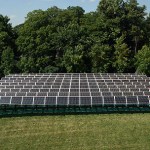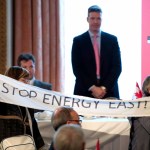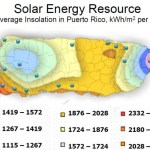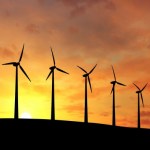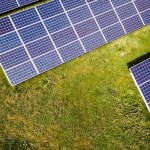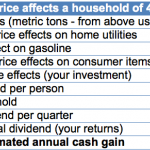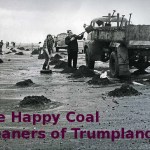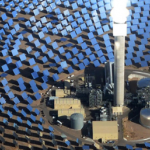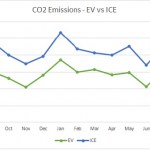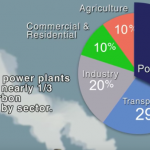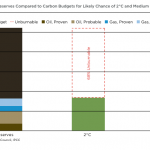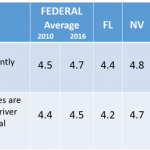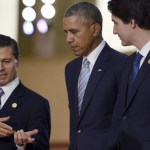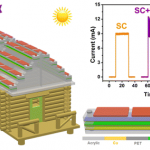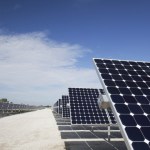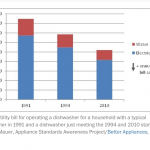Green Energy
Solar gardens in the state have just reached the 100 megawatt milestone.
This is actually something of a disappointment because a few years ago, Xcel, the main energy company involved in this, projected that we'd be at 200 megawatts by some time last year. On the other hand there are close to 180 new projects in design and construction phase. A current, revised estimate suggests that the statewide solar garden production will reach that 200 megawatt goal.
Currently, Minnesota plants are produce about 15,000 megawatts of electricity. So, the solar garden electricity is only 1% of our…
Witness the overall demise of fossil fuel pipelines, thanks in part to the hard work of amazing activists, and in part to the fact that the value of these pipelines is dropping fast, which in turn, can be attributed in no small part to the hard work of amazing activists. And now, the latest:
From The Globe and Mail:
TransCanada scraps controversial Energy East Pipeline project
TransCanada Corp. has pulled the plug on its controversial $15.7-billion Energy East Pipeline proposal, after slowing oil sands growth and heightened environmental scrutiny raised doubts about the viability of the…
Puerto Rico can become the first significant size polity to rebuild itself from the ground up to be totally Carbon free. Or at least, that seems like a good idea. If only the US Government wasn't so anti-Puerto Rico, owing to the president being, well, Trump.
Anyway, there is now a pile of money and effort pouring int Puerto Rico and this can be used in part to give Puerto Rico sigificantly more economic and energy security in its future, if only energy-smart decisions are made now. So let's see what Get Energy Smart Now blog has to say about this!
Puerto Rico’s electricity system, prior to…
Sorry for the inconvenience, this post has been moved HERE.
True that. In the US, energy policy and regulation happens much more at the state level than the federal level, and our federal government went belly up last January anyway. Some states will not lead, they will go backwards, but others will lead, and show the way.
So, here I want to highlight this new item in Scientific American by Rebecca Otto.
States Can Lead the Way on Climate Change
The Trump administration's threats to abandon Obama's Clean Power Plan and exit the Paris accords don't necessarily mean all is lost
The word “corporation” does not appear in our Constitution or Bill of…
Earlier today, Minnesota Gubernatorial candidate Rebecca Otto released her energy transition plan. It an ambitious plan that puts together several elements widely considered necessary to make any such plan work, then puts them on steroids to make it work faster. To my knowledge, this is the first major plan to be proposed since the recent dual revelations that a) the world is going to have to act faster than we had previously assumed* and b) the US Federal government will not be helping.
Here's the elevator speech version: Minnesota residents get around five thousand dollars cash (over…
I'll just put this item from UCS here for your interest:
FOR IMMEDIATE RELEASE
Study Finds Top Fossil Fuel Producers’ Emissions Responsible for as Much as Half of Global Surface Temperature Increase, Roughly 30 Percent of Global Sea Level Rise
Findings Provide New Data to Hold Companies Responsible for Climate Change
WASHINGTON (September 7, 2017)—A first-of-its-kind study published today in the scientific journal Climatic Change links global climate changes to the product-related emissions of specific fossil fuel producers, including ExxonMobil and Chevron. Focusing on the largest gas, oil…
It suddenly became apparent, just a couple of days ago when President Trump was ranting and raving at a political rally, that the man does not know what clean coal is.
This is a concern because his entire energy policy stems from the assumption that we can mine lots of coal in West Virginia and use that for energy, that this is OK because it will be clean coal.
The term clean coal has been used in three ways, but really, is correctly used in only one way (number 2 of the three below), and when used that way, it is still bogus.
1) The term clean coal, or phrases very close to it, have been…
SolarReserve will build, for the South Australia government, a solar thermal plant rated at 150 MW, which is about 25 MW more than that government uses currently. Over time, assuming Australia goes all on clean and green, the amount of electricity used by South Australia will increase substantially, but for now, this plant will provide the extra to the regional grid.
A solar plant is a way of making the use of solar more full time. Instead of just producing electricity by sunlight, perhaps storing some in batteries, it uses sunlight to produce heat, which is then used to run a turbine all…
Two items I know you'll want to check out.
The ‘intellectual’ debate Rick Perry says he wants is already over
Last week, Energy Secretary Rick Perry told CNBC he considers his skepticism towards climate data to be a sign of a “wise, intellectually engaged person.” Yesterday, at a press briefing at the White House – it’s apparently supposed to be “Energy Week” – Perry used similar phrasing, calling for “an intellectual conversation” on global warming.
Four myths journalists should watch out for during Trump’s “Energy Week”
The White House has declared this to be "Energy Week" and is pushing…
The Republican line is this: Bring back coal, shut down development, subsidies, any encouragement at all, for solar and wind energy.
There is absolutely no logic to this policy, but it is in fact the policy. The reason for it is generally thought to be that the big rich corporations and individuals that control coal and petroleum resources, and that are fully engaged in delivery of those energy sources (and other materials, such as plastic bags made of petroleum) pay off the politicians to support their businesses. And that is true, they do this. But that does not explain why regular…
If most of the electricity used to charge your electric car is made by burning coal, is it still worth it, in terms of CO2 release, to buy an electric car?
Yes. And you will also save money on fuel.
Don't believe me? Want me to show you? What, are you from Missouri or something? Fine. I'll show you.
A few years ago, when there were no affordable electric cars that were real cars, we decided to look into buying the next best thing, a hybrid. We wanted to get the Toyota Prius because it looked like a good car, had long proven technology, and all the people we knew who had one were happy…
The US is already behind in its agreed to commitment to clean power
A study just out in Nature climate Change suggests that the US is already behind in its commitments to reduce the use of fossil fuel as an energy source, and the concomitant release of climate-warming greenhouse gasses into the atmosphere.
The paper, by Jeffery Greenblatt and Max Wei, says:
Current intended nationally determined contributions (INDCs)are insufficient to meet the Paris Agreement goal of limiting temperature change to between 1.5 and 2.0◦C above pre-industrial levels, so the effectiveness of existing INDCs will…
Obviously, we need to stop the human enhanced extra greenhouse effect. There are a number of ways to approach this. Let me say right away that taking CO2, the main greenhouse gas of concern long term, out of the atmosphere is NOT one of the ways. Here's why: It takes energy to put Carbon into solid or liquid form. You get energy back when you move the Carbon into a gas form (as CO2). That is something of an oversimplification but long term, large scale, it is correct. Since, for the most part, the greenhouse effect is caused by the the generation of energy for use, which causes the movement…
By important, I mean people who have their hands on the levers of power, more or less, in areas that affect energy policy.
I don't really care if Uncle Bob doesn't accept climate change. Uncle Bob votes for right wing yahoos anyway, that wasn't going to change. Why should it matter what Uncle Bob thinks?
Unless Uncle Bob is a top policy actor involve din climate and energy issues at the federal level or in Florida, Nevada, North Carolina, or Ohio. Right?
The Climate Constituencies Project looked at these folks (Uncle Bob's colleagues as described) to see where they stand on climate change…
Barack Obama, Justin Trudeau and Enrique Peña Nieto, have made a joint announcement. As reported by NPR:
President Obama and his counterparts from Canada and Mexico are preparing to unveil an ambitious new goal for generating carbon-free power when they meet this week in Ottawa.
The three leaders are expected to set a target for North America to get 50 percent of its electricity from nonpolluting sources by 2025. That's up from about 37 percent last year.
Aides acknowledge that's a "stretch goal," requiring commitments over and above what the three countries agreed to as part of the Paris…
There is a new technology that can convert both solar and wind energy into electricity in such a way that it is suitable for use on urban rooftops.
Here's the abstract from the paper describing this work:
To realize the sustainable energy supply in a smart city, it is essential to maximize energy scavenging from the city environments for achieving the self-powered functions of some intelligent devices and sensors. Although the solar energy can be well harvested by using existing technologies, the large amounts of wasted wind energy in the city cannot be effectively utilized since…
Michael Mann has an editorial on Scientific American's site putting the well known 2.0C limit in perspective for the upcoming climate talks in Paris.
Mann makes a number of important points in his essay (read it here: Meeting a Global Carbon Limit Is Cheaper Than Avoiding One) but there is one point that I want to underscore.
The key factor is that there are technological innovations and economies of scale that emerge only in the course of actually doing something.
Here's the thing. Let's say you were suddenly in charge of one trillion dollars of money that could be used to address climate…
One of the problems we have in making a quick transition to clean energy in the US is the fact that energy production and distribution is typically regulated by states, and some states are not as smart as other states. Or, if they are smart, they are controlled by political forces intent on maintaining fossil carbon based fuels as our primary energy source, which of course, is a totally bone-headed policy.
When it comes to the transition to clean energy, we can do this the easy way, or we can do this the hard way. The easy way is to encourage the picking of low hanging fruit, such as solar…
As an anthropologist, I find the interface between technology and the larger culture in which it is embedded fascinating. You all know the old story of the family cook who habitually cuts the ends off the roast before slipping it in the oven. One day her child, hoping some day to be the family cook, asks why this is done. It turns out that nobody can remember, and the matter is dropped. But the question comes up again, at a later family dinner, this one attended by great grandma, who was the family cook a generation ago, and of course, she knows the answer.
"Back in the day," she says, "…
